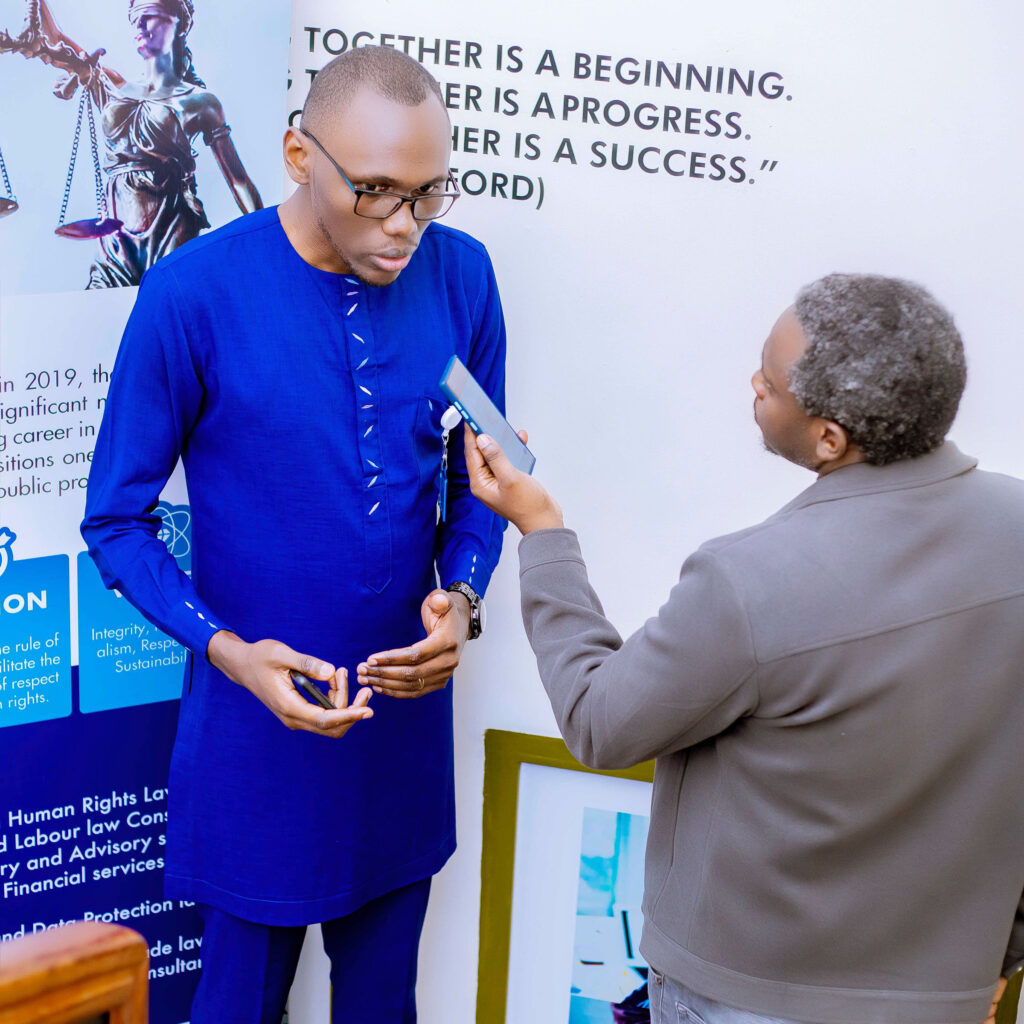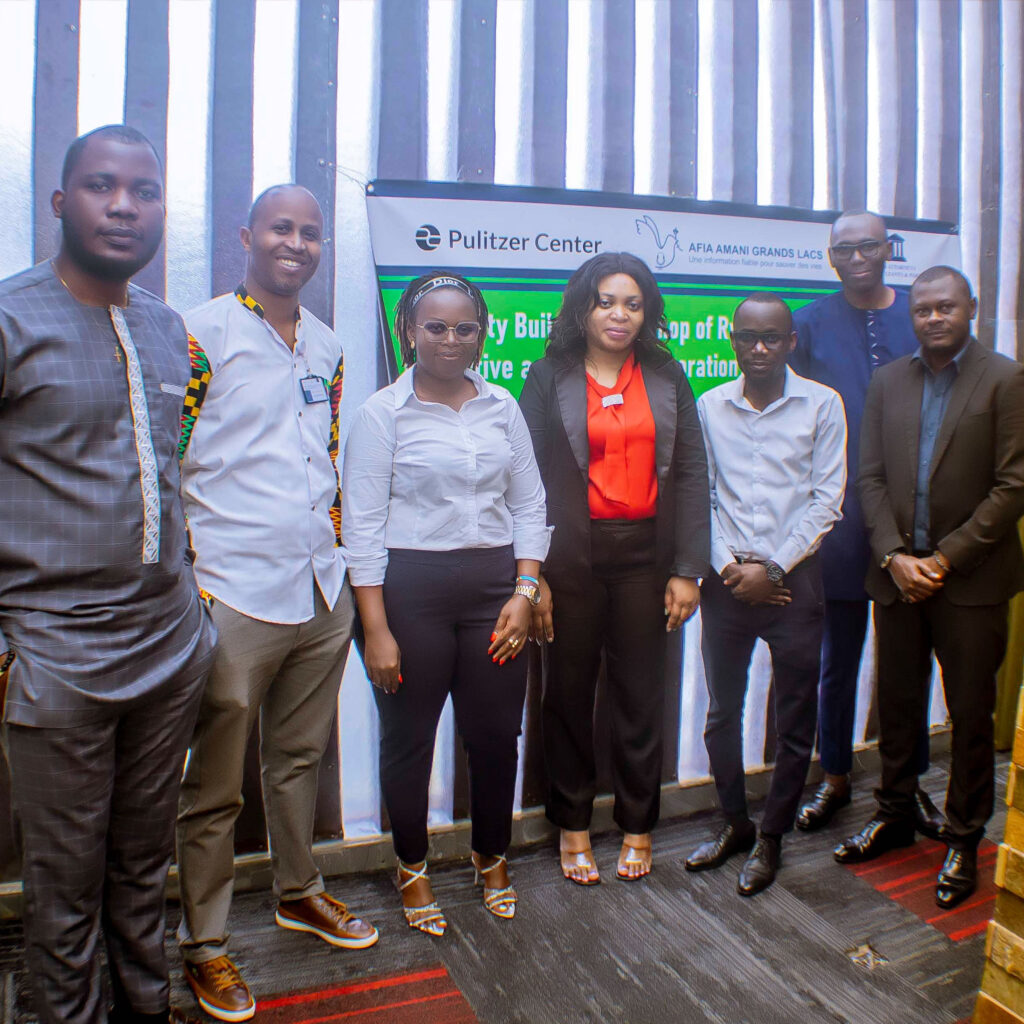On April 17, 2025, Kigali Attorneys and Partners LLP, in collaboration with AFIA Amani Great Lakes and with the financial support of the Pulitzer Center, hosted a dedicated training session for media professionals on Investigative Journalism for Environmental and Climate Issues.
The training addressed the growing need for rigorous reporting on the civil and criminal responsibilities of mining companies and other actors in the extractive industries when it comes to environmental pollution and destruction a critical conversation in the global fight against climate change.
The day’s program was structured around two key sessions:
Session One:
The first session, led by Me Nathan Noumi, focused on Media Law and Investigative Ethics. Me Noumi emphasized the media’s vital role as a watchdog, particularly when it comes to scrutinizing the operations of extractive industries such as mining, gas, and oil. The session explored the importance of mastering legal frameworks including mining regulations and access to information laws , while also preparing journalists for challenges linked to defamation, cybercrime accusations, and data security.
Participants were encouraged to adopt strong investigative practices, including source verification, whistleblower protection through encrypted communication tools, and maintaining a careful balance between respecting trade secrets and serving the public interest.
Session Two:
The second session, led by Me Frank Tsague, was titled “Environmental Law and Extractive Activities: Balancing Development and Sustainability.” The presentation offered a comprehensive overview of the legal and regulatory landscape of environmental protection in Rwanda, with particular attention to the extractive sector.
Structured around five core themes, the session covered:
- Definitions and Context of Key Environmental and Extractive Terms
- Legal and Administrative Framework for Environmental Protection in Rwanda
- Corporate Social Responsibility (CSR) of Extractive Companies
- Real-World Environmental Impacts of Extractive Activities, supported by case studies from Rwanda
- Civil and Criminal Liability for Environmental Damage in the Extractive Sector
The session fostered open discussion and collaboration, encouraging participants to share field experiences, analyze real cases, and reflect on the role of investigative journalism in holding companies accountable. The day concluded with group workshops, where participants debated and explored practical solutions to improve environmental reporting and public engagement.
Conclusion:
This training session not only strengthened the legal and technical knowledge of participating journalists but also reaffirmed their essential role in promoting environmental justice and responsible industry practices. By producing credible investigations, media professionals can expose environmental misconduct and drive meaningful change.
At the end of the session, we launched an exciting competition to encourage impactful stories and investigations on environmental violations in Rwanda!
#InvestigativeJournalism #EnvironmentalJustice #ClimateChange #MediaLaw #ExtractiveIndustries #Rwanda #KigaliAttorneysAndPartnersLLP #AFIAAmaniGreatLakes #PulitzerCenter

















